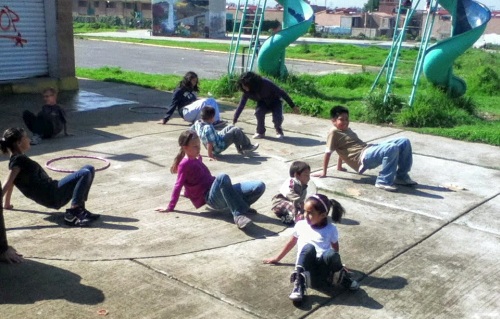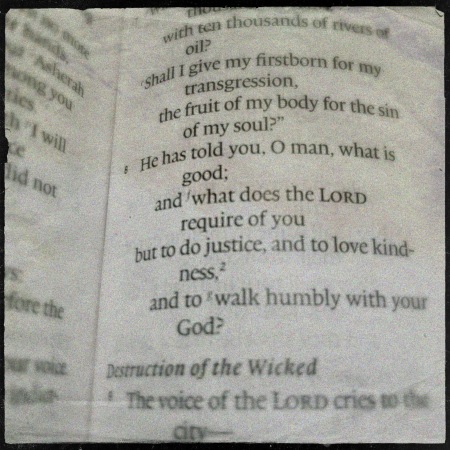Justice: Oppressor and Oppressed
In our Biblical Anthropology study, we’ve been revisiting the topic of truth, from the perspective of justice. Verses such as Leviticus 19:36 remind us of how important truth is to God in our everyday lives. When you buy 100 grams of grain at the store, most people are not happy if it turns out to be 50 grams instead.
We also started talking about how the enemy has to mix truth with lies in order to attack God and His people.
We also introduced Karl Marx, and the Marxist worldview.
We’re going to touch on a lot of related topics today, but I should start with a disclaimer. These posts are very brief, and are meant to start us thinking about a variety of topics. Talking about the history of all these ideas and philosophies can end up being an endless task.
So we’re going to start with marxism in a very broad and general sense. Not all of this will be completely and technically “Marxist”. But the point here is to give us a bit of a hook on which we can hang our thoughts – a starting point.
Today, let’s start with The Communist Manifesto, written by Marx and Federico Engels in 1848. Here’s how the first chapter begins:
The history of all hitherto existing society is the history of class struggles. Freeman and slave, patrician and plebeian, lord and serf, guild-master and journeyman, in a word, oppressor and oppressed, stood in constant opposition to one another, carried on an uninterrupted, now hidden, now open fight, a fight that each time ended, either in a revolutionary reconstitution of society at large, or in the common ruin of the contending classes.
The Communist Manifesto
According to Marx and Engels, the world is made up of the oppressed and the oppressors. You are one or the other. And so, in order to correct this problem, we need to completely tear down our society and rebuild it so that there are no longer these two categories. That is to say, we need revolution.
Well, we as Christians are certainly against “partiality”, right? But what is it that is really being said?
Let’s see how all this works. For Marx, the basis of the difference between these two groups is economic, and the power that wealth brings with it. Different “classes” of people.
Today, many people take this idea much farther than just economics, and bring in many other aspects of “power”. For example, you can “oppress” someone using words, or unjust systems in society.
Are you a minority? Maybe you live in China, and you’re Mexican. Or what if men have more opportunities than women? Or what if you consider yourself to be a sexual minority? Or what if your people have been historically oppressed?
Well, we take all of these things and we assign “oppression points” (that’s not a term in common use – but it helps give us an idea of what’s happening). You’re a woman? 10 points. Racial minority? 20 points. Poor? 15 points. (Don’t get upset – I’m just assigning random points here…)
Today, this is often called intersectionality. All of your identities and the groups you belong to intersect.
Now, we have a long way to go here on this topic, and we will talk more about how God’s Word promotes impartiality. But in today’s world, these ideas are used to negate God’s truth. How?
A few years ago, I was at a Spanish language conference in the USA along with thousands of people from the USA and all over Latin America. And someone asked about the development of Christian theological resources from Latin America. In other words, we want to see more.
One of the conference leaders asked (and I paraphrase), “All right, if you had these resources, would you buy them?” That’s a good question for a number of reasons. But then he got more to the point.
If I remember, he basically emphasized that the truth of the Bible is the same, no matter where you see it – whether it comes from a theologian from the USA, or a theologian from Mexico.
After the session, I was at a table with some of my friends from Mexico, and I pushed back a little bit. I pointed out that I think there is still value in different perspectives, even though God’s Word itself doesn’t change. A Mexican writer, for example, may explain the same truth in a way that can be more understandable to Mexicans, and may apply that truth in a way that’s more applicable to Mexicans. And that’s one reason why I was (and am) in favour of the development of more theological resources from all over the world.
However, I think that this leader at the conference may have already thought this through a little more than I had.
What is the value, say, of a Mexican theology book? Well, it’s written in Spanish – that will be helpful for a lot of people. Maybe it will use illustrations that will connect more with Mexican people. It will emphasize issues that we deal with in Mexico. In other words, the application will be different, in some cases.
But again, the truth won’t change.
And so if I buy a book to study a topic, I want the best study of that topic, no matter who the author may be.
We can also affirm that a poor widow in Tanzania who studies God’s Word with normal means will find the same basic truth as the scholar in the United States.
But this is not what the world is trying to tell us.
What is it that many teach today? First, we find someone with many points of intersectionality. Then, we especially listen to that person, because they can see a “truth” from their perspective that you can’t see from yours. In fact, if they’re in the right “oppressed class”, their “truth” is actually more valid than yours.
And I put “truth” in quotation marks, because in the end we’re talking about relative truth, not any kind of absolute truth that may be in the mind of God.
This is standpoint theory, or standpoint epistemology (epistemology being the study of truth).
In the local church, we listen to one another and learn from one another as equals in Christ. But the truth doesn’t change based on our perspective. But for many in the world today, we listen to the “oppressed” (more about how that’s defined later), and they tell us what the “truth” is.
Do you see the difference? For the world, the point of view – the standpoint – defines the truth. God doesn’t define the truth. And so we find feminist epistemology, feminist truth that only they can see. Or decolonization epistemology – knowledge has been dominated by the colonizers throughout history, and so we need a “new truth”. Some places are literally trying to change mathematical truth because they believe that certain nations have controlled it.
The day before I preached the sermon that this post comes from, I heard about someone from a large global Christian mission that said we need a new hermeneutic to understand the Bible. If you have taken a hermeneutics course (the study of how we study and interpret the Bible), forget about it. We need to change the truth of the Bible.
This is from a Mexican newspaper in 2005 (La Jornada) – translation mine:
There exists today a crisis in the social sciences, which generates a feeling that these disciplines cannot resolve the social justice problems in our society. For this reason, in Latin America we need to develop a new epistemology that explains our reality, highlighted the Portuguese researcher and jurist Boaventura de Sousa Santos . . .
La Jornada (2005)
According to many today, we need to change the truth.
And all that brings us to an interesting question. Remember now, according to Marx, the entire world is made up of the oppressed and the oppressors. And so we need to take from the oppressor and give to the oppressed.
So let’s say that Mark is an oppressor. But wait – who defined “oppressor” in the first place? And now, what if Mark doesn’t want to give to Ashley, who is oppressed? Easy. We need a government that can decide what truth is, define who is oppressed and oppressor, and who can take from one and give to another.
Are we starting to see a problem here? This revolution requires experts – with complete power.
I remember reading a satirical article – it was entitled “Experts Are Super Smart And 100% Reliable, Experts Confirm”.
A new study performed by experts has confirmed that experts always know what they’re talking about and never, ever just make stuff up to sound smart, experts confirmed today.
The Babylon Bee
“Experts are always to be trusted and have never been wrong before,” said the experts at the recent Expert Conference, Sponsored by Experts. “Experts are so smart. And also really good-looking and not socially awkward. You should be friends with experts, ’cause, uh, experts are really neato.”
But really, it’s no joke. Do you remember the half-built house, the headquarters of the enemy, from the last post? Who can keep it holding together? Someone with authority must enforce their version of the truth. Because reality is not uniting us – a lie is not something real.
In March of 2020, the prime minister of New Zealand made this comment about the COVID-19 situation. Now, no matter what you think about COVID-19 and the lockdowns, listen carefully:
We will share with you the most up-to-date information daily. You can trust us as a source of that information. … For that information, do feel free to visit at any time to clarify any rumour you may hear [government website url], otherwise dismiss anything else. We will continue to be your single source of truth. We will provide information frequently. … When you see those messages, remember that unless you hear it from us, it is not the truth.
Jacinda Ardern (2020)
To say that people should only listen to one source to find the truth really is an end to science and to liberty. Don’t question – don’t test or evaluate – just accept.
Humanity has fallen into sin. To give too much power to a human authority is to invite oppression.
But without God, the world wants to decide what is true, and what has value. But according to the Bible, who has value? Everyone! Because of the imago dei – the image of God. Value given by God Himself.
So next time we’ll revisit that topic as we continue our search for biblical justice.



